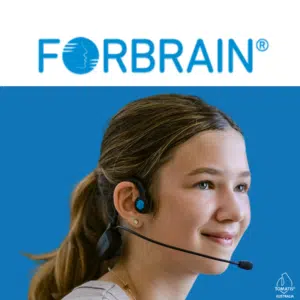Does your child have autism spectrum disorder (ASD) or special needs? Think epigenetics. According to Gene Counselor Dr. Valerio Vittone, epigenetics is a game-changer.
Epigenetics means outside of genes. DNA can not be modified. However, outside factors can cause change or switch genes “on” or “off”. These external factors include the environment, diet, habits, or lifestyle.
The Role of Music, Vitamin D, Diet, and DNA Testing
Music, Vitamin D, diet, and lifestyle changes can influence how genes can switch on or off. Based on genome studies, ASD correlates with environmental factors like pollution that have a negative effect. Researchers identified 23 susceptibility changes in genes shared in various disorders, including ASD.
These shared common genes serve as the basis for making dietary interventions and lifestyle changes. These modifications decrease symptoms and promote better function of kids with ASD. It leads to a profound effect on their quality of life.
One of these genes is responsible for regulating neurotransmitters in the brain, specifically dopamine. Experts point out that dopamine dysregulation is evident in ASD.
Music
The use of music, such as those by Mozart and Beethoven, eases autistic symptoms. It increases the amount of dopamine in your child’s brain and lessens mutation in the dopamine receptor.
Dr. Vittone stated, “Playing music creates an epigenetic change that alleviates DNA malfunction.” He further said that interventions could resolve symptoms through epigenetic changes even if there is a genetic anomaly. Music is a positive epigenetic factor that increases dopamine in the brain of kids with ASD.

They learn more about music therapy; you may visit Tomatis Australia at tomatis.com.au/contact-us/.
Diet
The gut-brain axis plays a role in ASD. It is the communication of the gut and brain with the immune system as a mediator.
The microbiome is a collective of microorganisms found in the body and gut, like bacteria. The microbiome of your child with ASD has more bacteria. More bacteria, specifically clostridia, affects your child’s immune system. The switching on of the immune system for too long can lead to inflammation. Inflammation then influences neurotransmitters in your child’s brain.
The key is to decrease inflammation linked to ASD. It starts with gut health. To preserve the microbiome balance, you can introduce to your child more good bacteria like bifidum. Keto, Mediterranean, or low gluten and dairy are some dietary interventions you can check out.
The vagus nerve also plays a role in the gut and brain axis. It is one of the major nerves that sends signals to and from the gut and the brain. The vagus nerve is part of the limbic system of the brain that can be influenced by sound. It can work better through various interventions, such as music or sound therapy.
Vitamin D
Experts correlate the lack of Vitamin D to ASD. It is vital for your child with ASD since it modulates serotonin levels. Serotonin receptors regulate processes in the brain. Too little or too much creates problems for your child. Serotonin regulates GABA and glutamate levels. An increase in glutamate makes your child extremely anxious, hyperactive, or excitable.
A study reveals that Vitamin D improved core symptoms of about 75% of participant-kids with ASD. Moderate sun exposure of 20-35 minutes a day is needed. You may consider supplements if your child is Vitamin D deficient.
DNA testing
ASD may start during and after pregnancy. The risk of ASD can even occur before conception. Experts noted that MATH-4, an enzyme produced by folate, affects one of the 23 susceptible genes.
A would-be mom can undergo DNA testing to measure her folate levels. Folate deficiency affects the gene which is involved in ASD. Once DNA testing has confirmed her folate status, a doctor can give her proper interventions. You can learn more about DNA testing and epigenetics with Dr. Vittone.
Listen to the Conscious Ear Podcast as psychologist and CEO of Hear and Now, Francoise Nicoloff and Dr. Vittone discussed epigenetics and its relevance to kids with special needs like ASD.
Talk to us. We listen.
We are here to listen – 0291 990 240 or email us at info@tomatis.com.au
Françoise Nicoloff
Official Representative of Tomatis Developpement SA in Australia, Asia and South Pacific, Director of the Australian Tomatis® Method, Registered Psychologist, Certified Tomatis® Consultant Senior, Tomatis® International Trainer and Speaker, Co-author of the Listening Journey Series, 40 Years of Experience, Neurodiversity Speaker




